Back in the late '90s, Geraint Lenegan used to deliver groceries with his semi-trailer to Aboriginal communities in remote Western Australia. He didn’t know it then, but his ultimate delivery to remote WA would be his son, Jarrad, who – on school holidays – would often be sitting next to him in the cab on those long road trips up north.
Fast forward more than 20 years, and Dr Jarrad Lenegan is now an RVTS registrar working in Broome and Fitzroy Crossing while he undertakes his GP training toward ACRRM Fellowship. He was recently appointed as the RVTS representative on ACRRM’s Registrar Committee.
Patrick Daley spoke with Jarrad for this edition of Journeys.
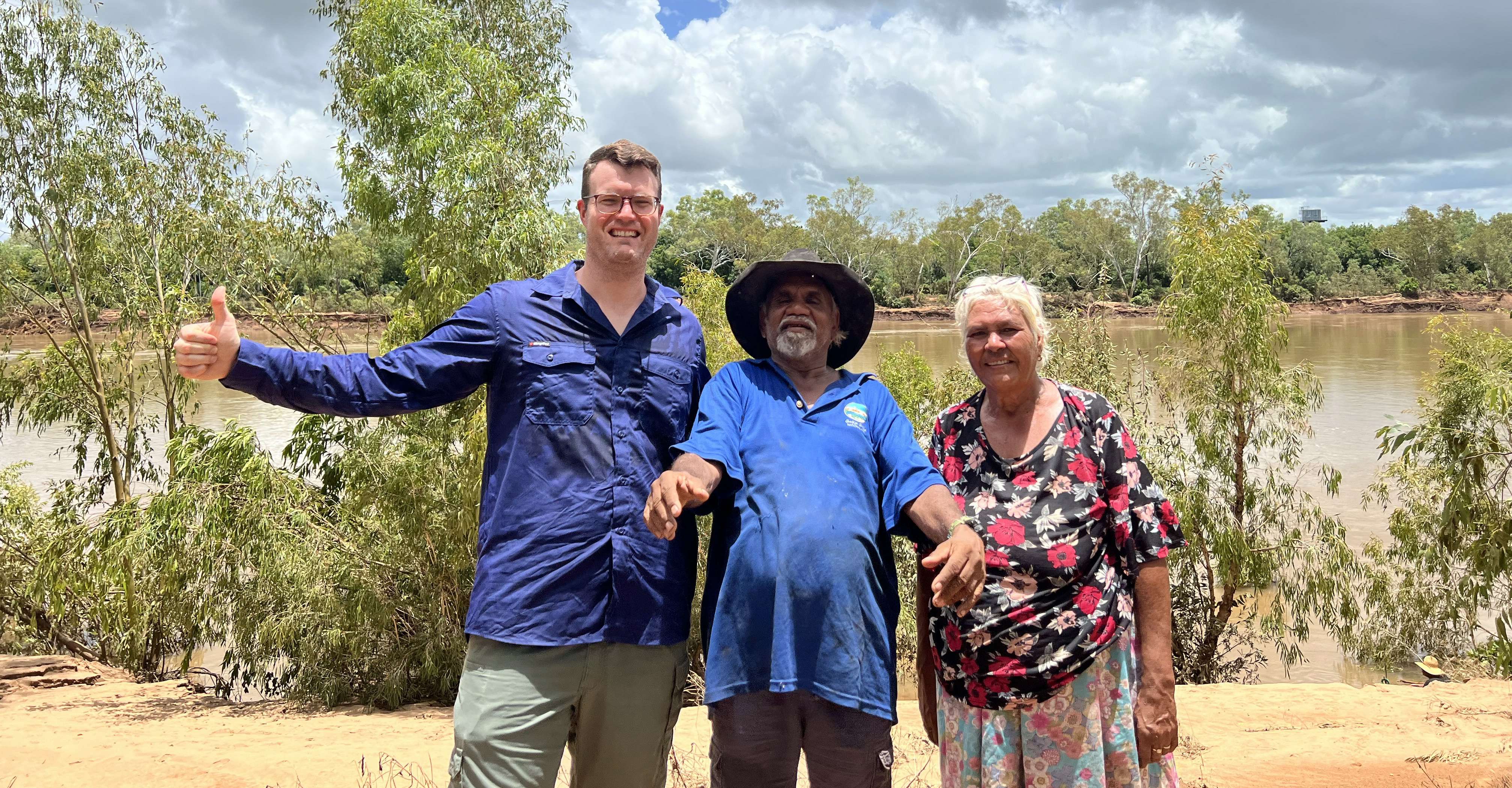 Dr Jarrad Lenegan (left) at Fitzroy Crossing with his cultural mentor, Andrew, and Andrew's wife, Mary.
Dr Jarrad Lenegan (left) at Fitzroy Crossing with his cultural mentor, Andrew, and Andrew's wife, Mary.
What career path did you have before studying Medicine?
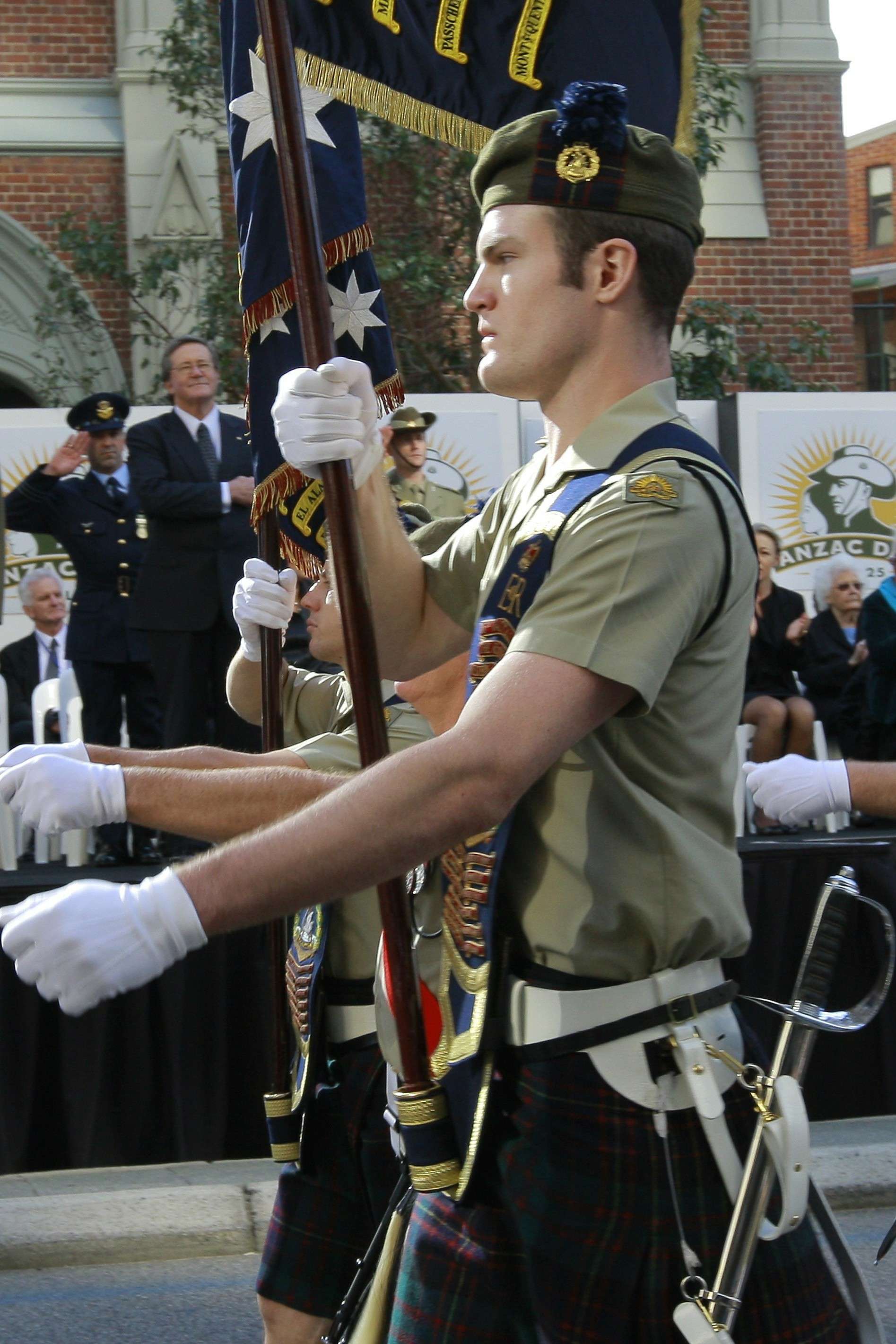 Throughout high school I was adamant I wanted to join the Army, and when I graduated I started university at the Australian Defence Force Academy (ADFA) in Canberra. I spent one and half years at ADFA doing an Arts degree – which was great for my discipline, teamwork and self-confidence – but I decided the full-time Army wasn’t quite right for me.
Throughout high school I was adamant I wanted to join the Army, and when I graduated I started university at the Australian Defence Force Academy (ADFA) in Canberra. I spent one and half years at ADFA doing an Arts degree – which was great for my discipline, teamwork and self-confidence – but I decided the full-time Army wasn’t quite right for me.
I returned to civilian university in Perth, transferred into the Army Reserve and have been a part-time soldier since then. Since moving to the Kimberley last year, I have been a member of the ‘North West Mobile Force’ or ‘NORFORCE’ which undertakes surveillance and reconnaissance throughout the remote north.
What got you interested in studying Medicine, and then Rural Medicine?
My pursuit of Medicine was originally due to my interest in the clinical sciences – my undergraduate science degree was in Pathology. This was combined with my wish to get out from behind the microscope and talk with people.
The reasons I have gone rural probably pre-date my interest in Medicine – I grew up in a suburb in the Hills region of Perth, about 30 minutes from the city, but I fell in love with the beauty of central and north Western Australia when I joined my dad in his truck on trips during school holidays.
He delivered groceries to remote Aboriginal communities in places such as Warburton and Tjukurla in the Gibson Desert. This was probably where I decided big city life wasn’t for me.
I was also lucky enough to study at a Rural Clinical School in Orange (NSW) and be a part of the John Flynn Placement Program during medical school – this ‘maintained the rage’ and my passion for heading bush.
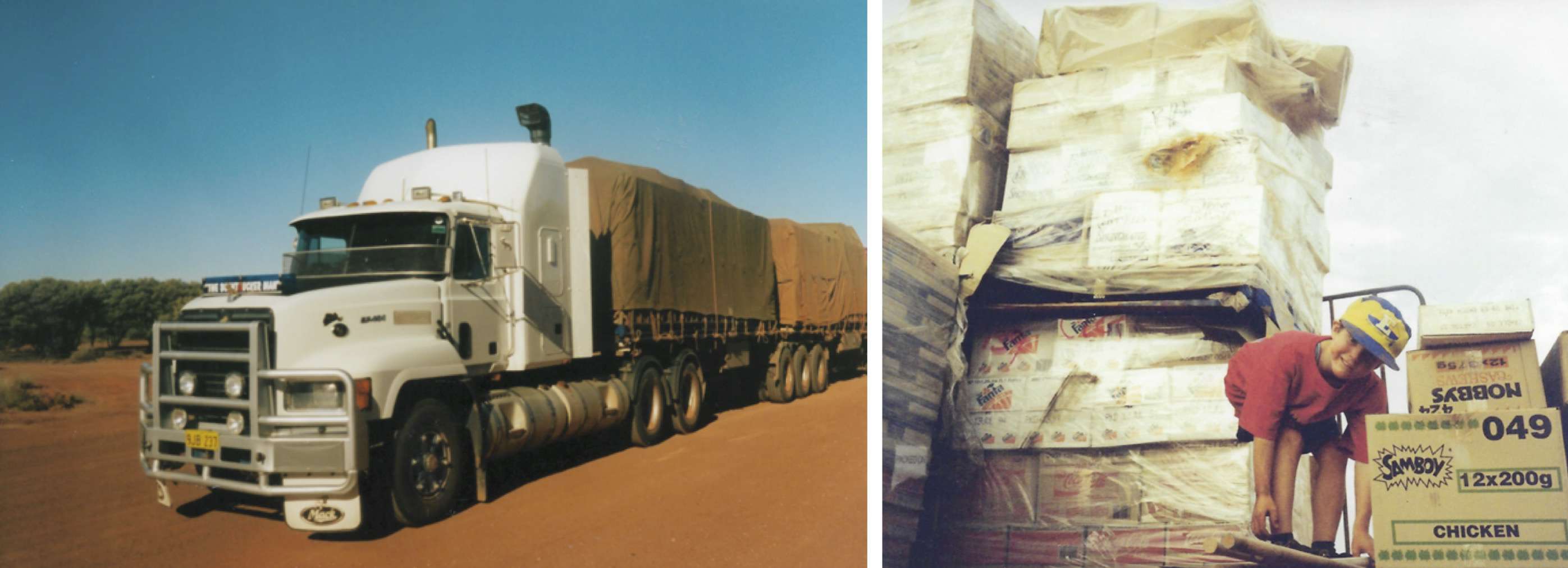 Jarrad as a young boy (right)...helping out his dad on his delivery trips up north in his Mack truck.
Jarrad as a young boy (right)...helping out his dad on his delivery trips up north in his Mack truck.
What appealed to you about GP training with RVTS?
Before starting with RVTS, I was training with the Australian College of Emergency Medicine (ACEM) in Perth. I think I was becoming impatient with having to undertake the majority of my training in major tertiary centres and being in Perth during some (brief) lockdowns due to COVID really increased my sense of feeling trapped.
My partner Ishbel and I discussed what we wanted to do, and decided we wanted to try life in the Kimberley.
When I started searching for jobs in north-west WA, I stumbled across RVTS and its ‘Targeted Recruitment’ – there was a job advertised for a GP Registrar at Broome and Fitzroy Crossing. And when I rang up to talk about the opportunity, I was immediately hooked.
So I am now undertaking my ACRRM training through RVTS, with an AST in Emergency Medicine!
RVTS has ensured I feel well-supported, and I reckon I have some of the most consistent and high quality GP training you can receive.
Ishbel has also found a great job up here – she’s working as a lawyer for the Aboriginal Legal Service in Broome.
What have been the challenges and highlights of your first year training with RVTS?
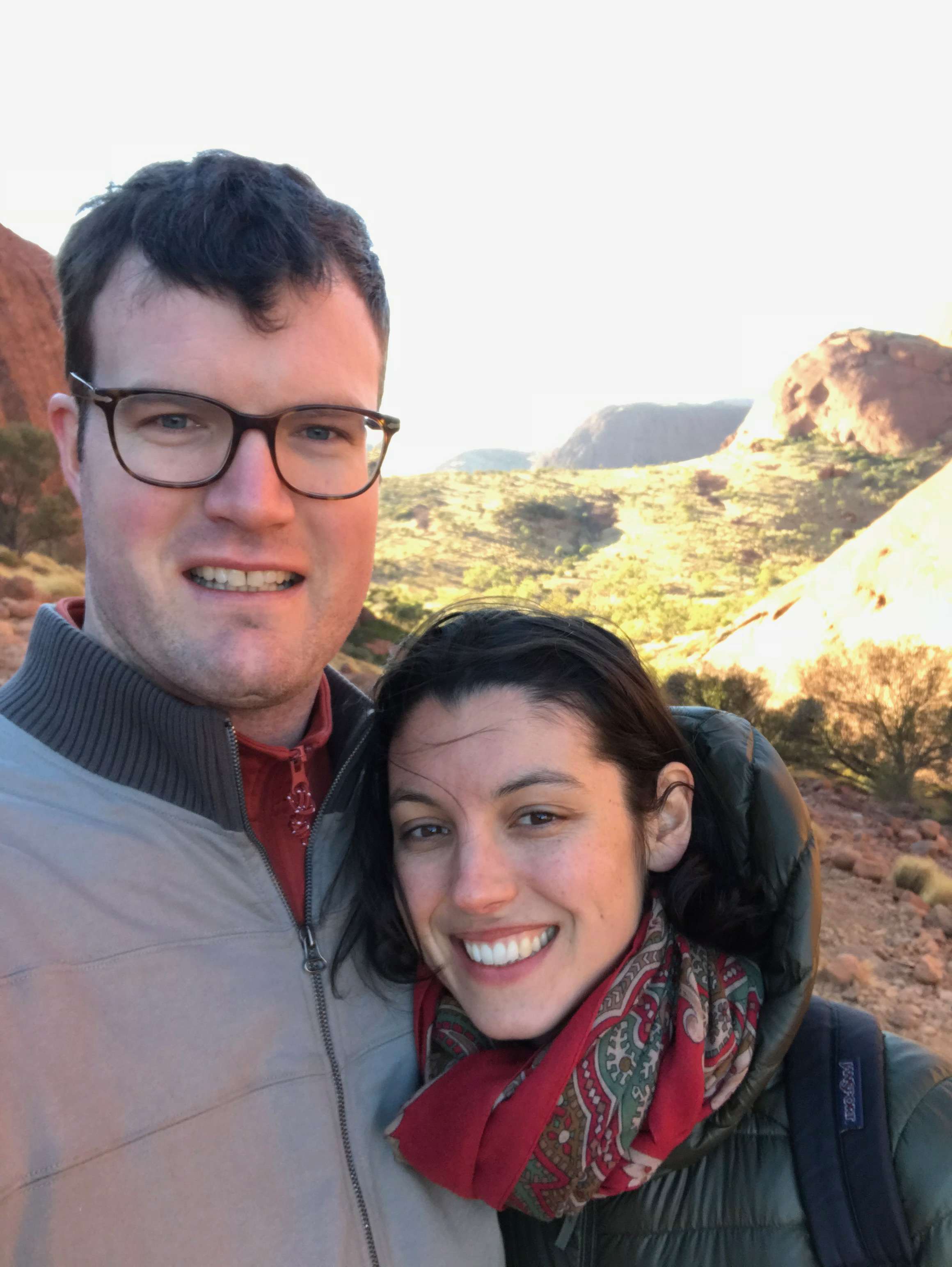
Jarrad and his partner Ishbel at the Kata Tjuta Valley of the Winds in the Northern Territory.
The challenges of distance that my patients experience are also the key challenges my partner and I face. My family is in Perth and Ishbel’s family is in New Zealand; border closures have made the feeling of distance even more acute – especially for Ish.
Other challenges have been working in a very remote hospital like Fitzroy Crossing with staff-shortages provoked by border closures. Nurses, locum doctors and other non-clinical staff positions have been hard to fill throughout the year. I have been proud of the way everyone in a small hospital pulls together and supports each other through the tough times.
Highlights this year have been in my General Practice in Fitzroy Crossing. Having come from an emergency background – when you have only fleeting interactions with your patients – the long-term clinical care you provide in General Practice is refreshing and very rewarding.
I have also found exploring the wilderness around Fitzroy Crossing – often with my cultural mentor, Andrew – to be amazing. I have now seen the radical change that Fitzroy Crossing goes through during the wet season when the river floods, and Andrew has given me a real insight into the people and landscape that has brought me closer to the town.
What has training with RVTS meant for the communities you are serving as a doctor?
Fitzroy Crossing has been reliant on locum doctors throughout its recent history and this is ongoing. I believe this works well enough for the Emergency Department, but does not suffice in the General Practice and Chronic Disease Management roles. In these roles, persistence and a local perspective really matter.
I think having a consistent doctor for a year has increased the trust of the local community, but also has allowed me to build the relationships and understand the finer details that allow me to provide more thorough and tailored care.
Tell me about the town and community at Fitzroy Crossing.
Fitzroy Crossing is a fascinating town built around a bridge (the crossing) that spans the mighty Fitzroy River. The ‘crossing’ itself has changed over time – it now is the Great Northern Highway, which heads from Broome/Derby (via Willare) to Halls Creek and Kununurra.
Prior to 1960 and the introduction of the Pastoral Award, the majority of the Aboriginal people within the Fitzroy Valley area were living and working on large cattle stations. Following the introduction of the compulsory award, hundreds of Aboriginal people were displaced from the stations and forced to live in atrocious living conditions on the fringes of Fitzroy Crossing.
Over the ensuing decades, the Aboriginal people of the five Fitzroy Crossing tribes – Bububa, Gooniyandi, Nyikina, Walmajarri and Wangkatjungka – built communities extending east over one hundred kilometres from the river.
The Fitzroy Crossing Hospital serves the town and these dispersed communities.
What does your mix of work across Broome and Fitzroy Crossing entail?
I work fly-in-fly-out from Broome into Fitzroy Crossing. My rotation is every fortnight. When I am in Broome I work at the hospital – in the Emergency Department or on the ward. When I head to Fitzroy Crossing, I work in General Practice on weekdays and in Emergency on the weekend. I am also often on-call for ED during the nights in Fitzroy Crossing. On Wednesdays in Fitzroy Crossing, I also head out to the local nursing home, Guwardi Ngadu, for a visit.
Working between Fitzroy Crossing and Broome (the direct retrieval hospital for Fitzroy Crossing) has improved my skills in arranging transfer so much stronger. I’ve had to be on both sides of the phone many times and you sympathise with the doctors in the very remote clinics who are relying on the prompt arrival of the Royal Flying Doctor Service.
Has RVTS's cultural awareness training assisted you in your work with Aboriginal patients at both Broome and Fitzroy Crossing?
The allocation of Andrew, my dedicated cultural mentor in Fitzroy Crossing, has provided me with a direct link to the local Indigenous community.
I have completed a number of formal ‘Cultural Awareness’ modules – both lectures and online – during my career so far. But nothing can compare to the experience of being on Gooniyandi country with a Gooniyandi man who takes you to where he was born, and shares with you hidden rock art and important cultural, fishing and hunting places along the Fitzroy River.
What are your longer-term plans as a doctor?
My current focus is on passing exams to qualify as a GP. I have committed to working between Broome and Fitzroy Crossing for at least the next two years. I am interested in undertaking extended skills training in Anaesthetics to become a GP Anaesthetist and to provide this service to the Kimberley.
Ishbel and I are also keen to see more of Australia and her home in New Zealand, so we might see what opportunities arise in other rural communities in the years ahead.
That is the beauty of being a Rural Generalist – flexibility and adaptability is key – and there’s plenty of demand for this in some spectacular places.
What interests do you have outside Medicine?
Coming to the Kimberley has allowed us to explore (by foot or 4WD) some truly arid and untouched locations. Ishbel and I are really keen to do this more over the coming years. I have also recently picked up the hobby of archery, and I am enjoying the simple meditation of flinging some arrows at a target.
What are some of the key issues you would like to progress through your role on ACRRM’s Registrar Committee?
The challenge of studying for exams while living and working in remote locations motivated me to represent RVTS on this Committee. I’m hoping to advocate for access and flexibility in College assessments, and also expand the mutual support among ACRRM registrars around Australia.
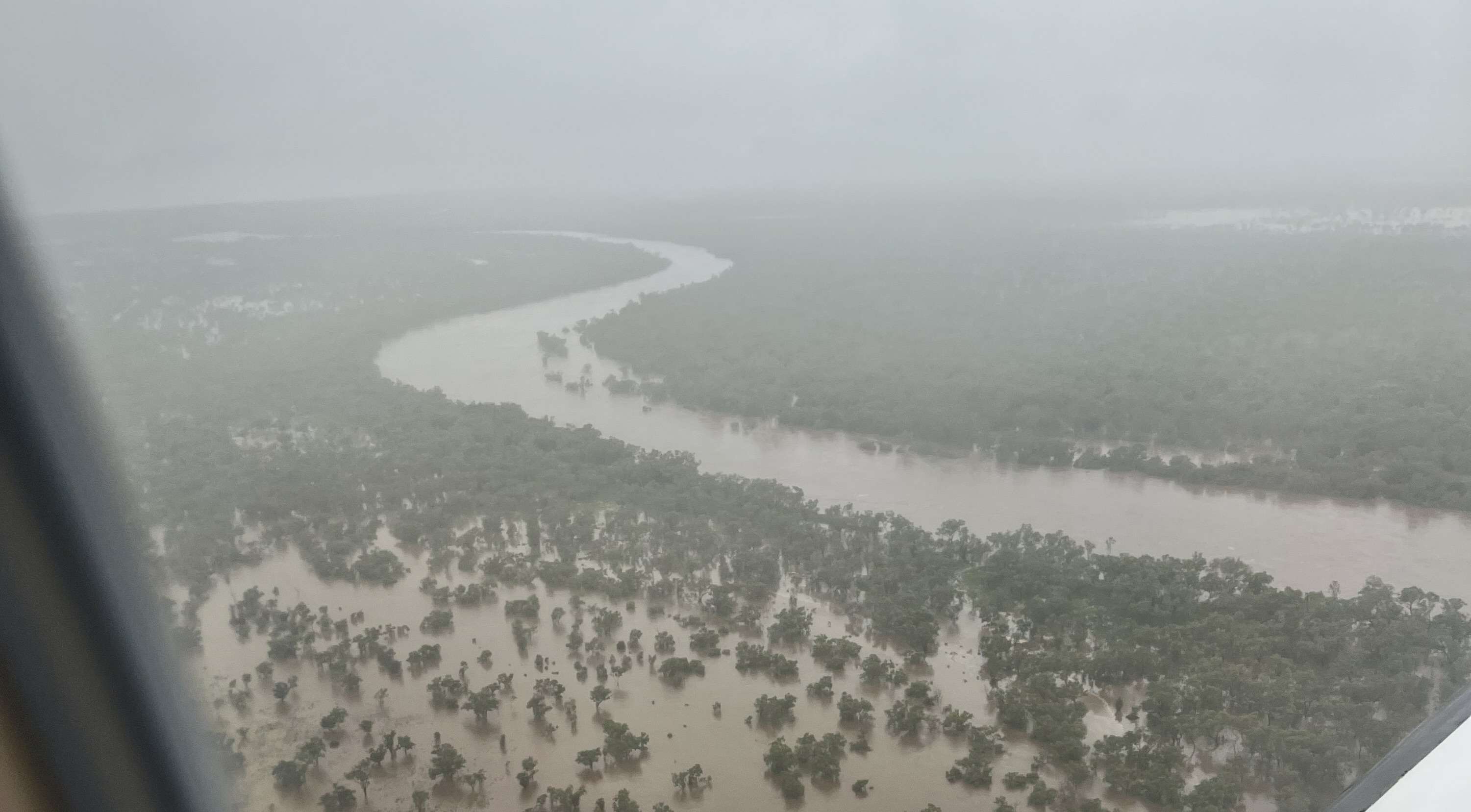 The Fitzroy River in flood.
The Fitzroy River in flood.